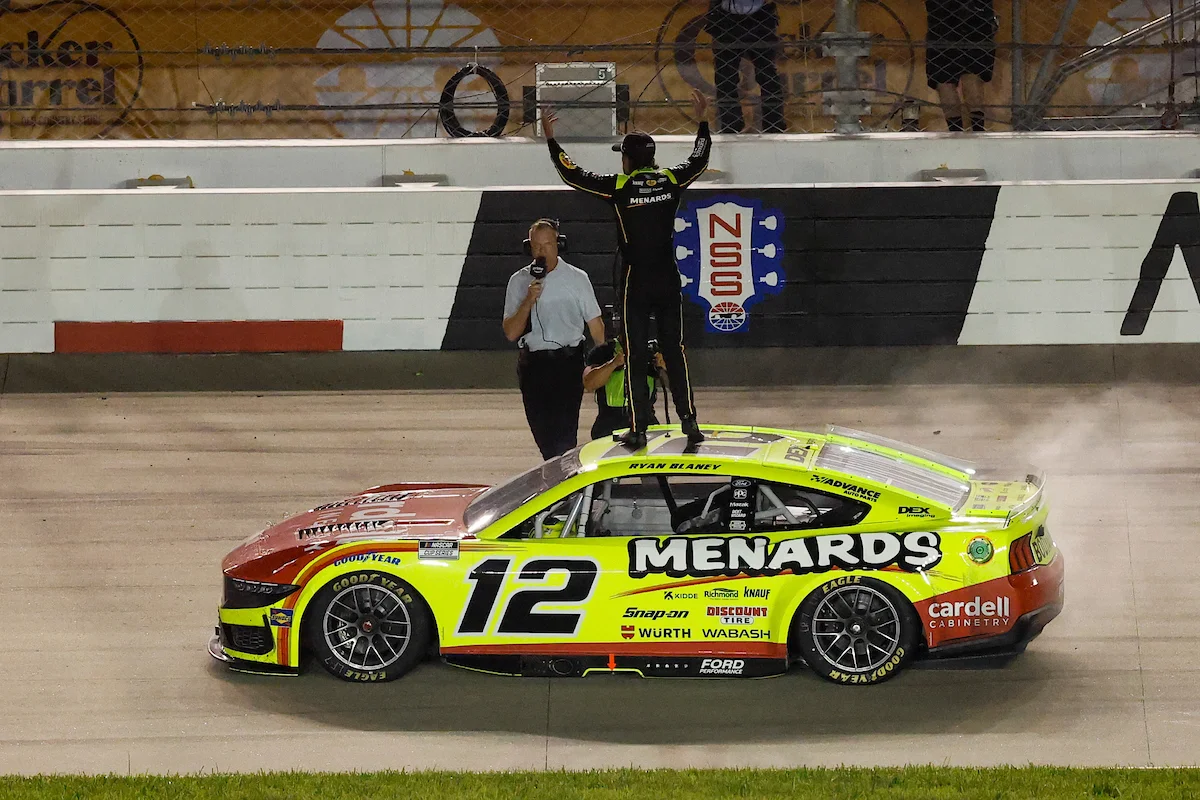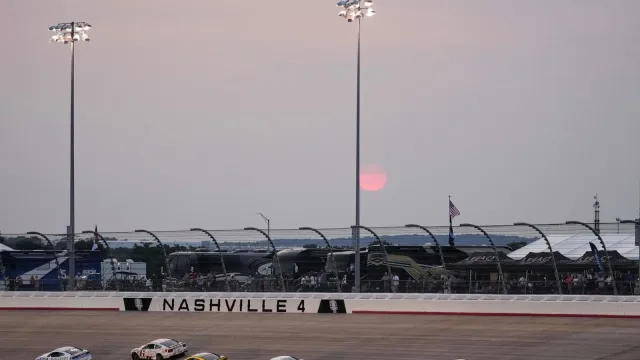Debate is intensifying within NASCAR circles as Ryan Blaney calls for learning from racing mistakes, highlighting concerns over aggressive driving behaviors displayed by young competitors such as Carson Hocevar. The issue came to a head leading up to the Michigan Cup race, where the Team Penske driver expressed frustration about repeated on-track incidents and their repercussions for the racing community at Michigan Super Speedway.
Recent criticism has come from several veteran drivers—including Joe Gibbs Racing’s Denny Hamlin and Ricky Stenhouse Jr.—who have been vocal about a worrying trend among emerging racers. Young drivers like Carson Hocevar have faced backlash for aggressive moves that some say cross the line. As a previous Cup champion, Ryan Blaney pointed out the cyclical nature of this debate, recalling how established stars were once aggressive newcomers themselves. Still, Blaney underscored the expectation that rookies must eventually learn and adjust their approach.
Blaney Urges Young Drivers to Grow and Adapt After Early Errors
Ryan Blaney emphasized that every driver starts their career with aggression and a drive to compete fiercely but maturing on the track involves learning from early mistakes. He noted that incidents and contact are inherent to racing, but the key issue arises when the same errors happen multiple times without meaningful change. Blaney’s message was clear: while a single misstep is understandable, a pattern of repetition signals a deeper concern for the sport.

I guess in my mind, hard racing is fantastic, everyone races hard. Contact is going to happen. I think it’s an issue if it happens repetitively, like a lot. I think that’s when it becomes, starts becoming an issue.
—Ryan Blaney, Michigan Super Speedway
With this perspective, Blaney stressed the importance of genuine personal growth for drivers like Carson Hocevar. He warned that repeated apologies lose their sincerity if not paired with real change, leading to skepticism among fellow competitors and the broader NASCAR community. Blaney’s comments reflect heightened scrutiny around responsibility, intent, and honesty in an environment defined by high stakes and split-second decisions.
Like, do you learn from your mistakes? You can say you’re sorry all you want, but if you don’t learn from them and make a change, then everyone thinks you’re lying, and you don’t feel sorry about that.
—Ryan Blaney
Driven by intense emotions, Blaney called out Hocevar for falling into a cycle of repeatedly making errors and offering empty apologies, sending a serious message about the consequences of failing to develop as a professional driver. This somber warning resonates as a critical lesson for all young competitors in the racing scene, suggesting that the ultimate measure is how well a racer responds to adversity and adapts their behavior on the track.
Examining the Controversy: The Nashville Incident and Accountability
The debate over accountability sharpened after the controversial stage two wreck at Nashville, involving Spire Motorsports’ Carson Hocevar and Hyak Motorsports driver Ricky Stenhouse Jr. Opinions swirled in the aftermath, with some suggesting that Stenhouse Jr. could have taken steps to avoid the situation. However, Ryan Blaney rejected these claims, maintaining that Stenhouse Jr.—a former Daytona 500 winner—had no reasonable options to prevent the collision.
I’ve read some stuff this week that people are like, ‘Well, you know, Stenhouse could have cut him a break.’ I’m like, ‘How could Stenhouse cut him a break?’ I don’t understand.
—Ryan Blaney
Further clarifying responsibility, Blaney contended that it was ultimately Hocevar’s actions behind the wheel that led to the crash. He portrayed the incident as an avoidable one, attributing the outcome to a lack of sound judgement and discipline. For Blaney, the crux of the issue was not about extending leniency but recognizing when a driver simply makes a harsh and preventable mistake.
I think the 77 could have cut him a break, if you’re gonna talk about breaks, I don’t even think that situation was cutting somebody a break. That was just getting run over.
—Ryan Blaney
This perspective aligns with growing frustration among veteran drivers, many of whom, like Denny Hamlin, have repeatedly highlighted the risks posed by unchecked aggression from new entrants. NASCAR’s competitive environment—demanding both skill and maturity—means that such incidents are scrutinized not only for their direct consequences but for what they signal about respect and professionalism on the grid.
What’s Next for Carson Hocevar and NASCAR’s Youngest Competitors
Blaney’s admonitions carry significant weight for up-and-coming racers such as Hocevar, as well as for organizations like Spire Motorsports tasked with guiding young talent. He made it clear that he does not expect Hocevar to fundamentally alter his competitive spirit or identity as a driver. However, Blaney called for a more calculated approach to aggression, urging Hocevar to avoid reckless decisions and focus on measured risk-taking instead.
How this feedback is received and whether meaningful change follows remains to be seen. As the racing world looks ahead, attention will be on drivers like Carson Hocevar to demonstrate accountability and learn from their experiences under the pressure of public scrutiny. With influential voices such as Ryan Blaney emphasizing the importance of growth and responsibility, the message is unmistakable—progress in NASCAR is measured not just by winning but by evolving with each challenge faced on and off the track.
